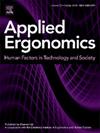从工厂学校到数字模拟:一个多学科的以人为中心的干预,以改善循环制造系统的培训
IF 3.4
2区 工程技术
Q2 ENGINEERING, INDUSTRIAL
引用次数: 0
摘要
环境紧急情况正在推动企业走向循环经济,这就需要转变制造系统来应对循环挑战。在不确定的环境中,复杂的任务需要高度的人力参与,操作员培训对于保持生产性能和保护健康至关重要。本文以某电子产品再制造企业为研究对象。该报告质疑该公司的培训流程,该流程旨在使操作人员在保持健康的同时更快地操作。工业工程、职业心理学、人体工程学等多学科团队在学习型工厂进行实验,收集数据。然后,在工业仿真中很少集成人类的研究背景下,提出了一个集成个体间变量和操作员健康的数字仿真。研究结果表明,需要在模拟中建立详细的操作员模型,并通过创建角色来反映差异。仿真结果为工业应用提供信息,为培训操作员提供新的任务分解。本文章由计算机程序翻译,如有差异,请以英文原文为准。
From factory school to digital simulation: A multidisciplinary human-centred intervention for improving training in circular manufacturing systems
The environmental emergency is pushing companies toward a circular economy, necessitating a transformation of manufacturing systems to tackle circularity challenges. In uncertain environments where complex tasks require high human involvement, operator training is critical to maintain production performance and protect health. In this context, a remanufacturing company of electronic products is studied. The paper questions the company's training processes, to make operators operational more quickly while preserving their health. A multidisciplinary team in industrial engineering, occupational psychology, and ergonomics conducts experiments in a learning factory to collect data. Then, a digital simulation integrating inter-individual variabilities and operator health is presented, in a research context where humans are rarely integrated in industrial simulation. Findings suggest a need for detailed operator modelling in simulation and thanks to the creation of persona to reflect differences. Simulation outcomes inform the industrial application, leading to a new task breakdown for training operators.
求助全文
通过发布文献求助,成功后即可免费获取论文全文。
去求助
来源期刊

Applied Ergonomics
工程技术-工程:工业
CiteScore
7.50
自引率
9.40%
发文量
248
审稿时长
53 days
期刊介绍:
Applied Ergonomics is aimed at ergonomists and all those interested in applying ergonomics/human factors in the design, planning and management of technical and social systems at work or leisure. Readership is truly international with subscribers in over 50 countries. Professionals for whom Applied Ergonomics is of interest include: ergonomists, designers, industrial engineers, health and safety specialists, systems engineers, design engineers, organizational psychologists, occupational health specialists and human-computer interaction specialists.
 求助内容:
求助内容: 应助结果提醒方式:
应助结果提醒方式:


